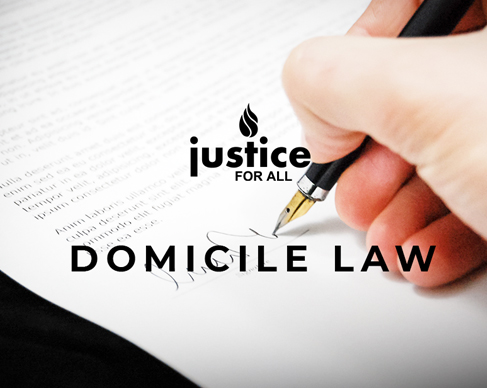
Domicile law pertains to the legal concept of "domicile," which is the place where an individual has their permanent home, and it holds significant legal implications related to a person's civil and legal status, particularly in matters of jurisdiction and taxation. A person's domicile can determine the laws that apply to them in various legal issues, including inheritance, divorce, and tax liability.
Domicile is more than just a person's residence; it is their fixed, permanent, and principal place of abode. It is distinct from a mere temporary or secondary residence. Establishing domicile involves intent, physical presence, and the absence of a present intention to leave. A person can have only one domicile at a time, and it is typically the place where they have the strongest ties, such as family, employment, and community connections.
Domicile plays a significant role in various legal matters. For example, it can determine the jurisdiction of a court in family law cases, such as divorce and child custody, and it can influence the taxation of income and assets. Additionally, in matters of inheritance, the laws of the domicile can dictate the distribution of a person's estate. Understanding and establishing the correct domicile is crucial for individuals who wish to have clarity on how various legal issues will be governed and resolved. Domicile law ensures that the legal system respects an individual's connection to a particular place when determining their rights and obligations.